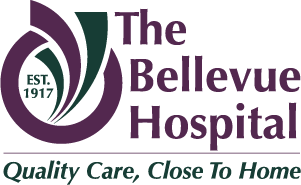Reduce Pain. Restore Function.
Giving birth is one of the most physically strenuous events of a woman’s life. It is important for postpartum women to help heal their bodies after childbirth to avoid long-term discomfort and lack of function.
Many women think that the pain, pressure or discomfort they feel after childbirth is normal and eventually goes away. For some women, that is not always the case. Sometimes, a woman’s muscles have become so weakened during pregnancy and childbirth, they need to be retrained to function properly.
Common symptoms of pelvic floor muscles not functioning properly include:
- Leaking urine when you cough, sneeze or do exercise that involves running or sudden movement
- Increased urinary frequency
- Pain in the pelvis, abdomen, lower back or tailbone
- Pain during intercourse or sexual dysfunction
- Bowel issues
- Pelvic organ prolapse
If postpartum conditions are still present from eight weeks to three months after childbirth, they are likely to persist at one year postpartum and become chronic conditions for one-third of postpartum women.
The Bellevue Hospital’s (TBH) Rehabilitation Department offers non-invasive physical therapy to help women in the postpartum stage. Our physical therapists focus on posture, body mechanics, and pelvic and abdominal muscle retraining to help restore function and reduce pain caused by the physical demands of childbirth.
“Beginning with an evaluation, our physical therapists will create an individualized treatment plan to help our patients recover, regain control and get back to doing the things they enjoy – faster – after childbirth,” said Julie Jones, director of TBH's Rehabilitation Department.
“Our physical therapists will educate patients on the proper techniques to help restore abdominal muscles, strengthen posture and increase pelvic floor function. Patients will also be given in-home strategies that are created to be performed during normal, every-day tasks with convenience in mind.”
Some conditions treated with postpartum therapy include:
- Postpartum lower back pain
- Pelvic floor pain
- Diastasis Recti Abdominis (abdominal separation)
- Incontinence
- Cesarean care for scars and restoring abdominal muscle function
- Postpartum headaches
- Body mechanics for baby care
- Return to activity or sport postpartum
A referral from a primary care provider or an obstetrician-gynecologist is required to begin postpartum physical therapy. If you are experiencing pain, discomfort and lack of function after giving birth, talk to your primary care provider about a referral today.
For more information, contact TBH’s Rehabilitation Department at 419.483.4040, Ext. 4279.

